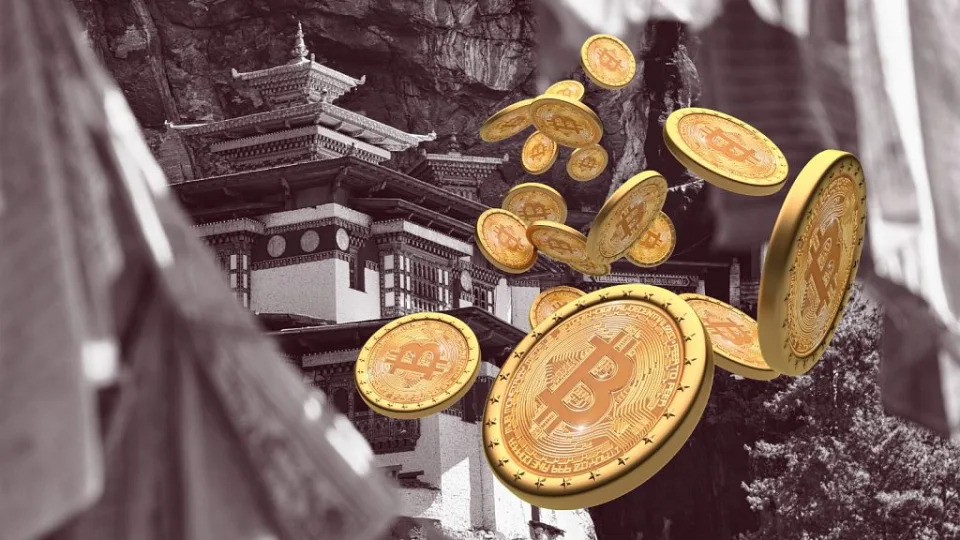Giulia Carbonaro
Fri, 5 May 2023

Bhutan, a South Asian kingdom nested in the Himalayan mountains, has recently revealed a secret that stunned the international financial market: the country has been quietly mining crypto for years without telling a soul - including its own citizens.
An even more stunning revelation was that the country has been able to mine crypto in a sustainable way compared to more commonly used methods which have been widely criticised for the large amounts of electricity required.
Bhutan has been able to mine for tokens using its massive stores of hydroelectricity - a renewable source of energy that can be largely considered to be “green”.
Amid Europe’s energy crisis, this Dutch tulip farmer is swapping gas for heat from Bitcoin mining
Bhutan has an abundance of hydroelectricity - a form of renewable energy that uses the power of moving water to generate electricity - thanks to the ancient glaciers feeding the many rivers flowing through the country.
Energy generated by hydroelectricity is currently fuelling the homes of most of the country’s 777,000-strong population, and it represents 30 per cent of the country’s gross domestic product (GDP).
But Bhutan’s recently revealed secret shows that the country has also been putting this immense resource to work for another purpose that could boost and sustain its economy in the future: the creation of its own crypto mines.
Bhutan is not alone in betting on cryptocurrencies for its future. The Central American state of El Salvador is currently the only country in the world to run state-owned crypto mines.
With its small size and limited resources, green crypto mining could be the solution to Bhutan’s economic independence, a country that has struggled for years to establish its self-sufficiency.
Bhutan has the advantage of its resources and environment making the country an ideal space for digital asset mining operations.
Hydroelectricity is cheap, and the country’s mountains, being so tall, provide the perfect environment to cool down heated-producing computers that are busy mining for Bitcoin. The country’s crypto mines could, at least on paper, have little to no carbon footprint at all.
The UK is planning 'robust' new cryptocurrency regulations after the FTX exchange collapse
Why was this a secret - and why has it now been revealed?
The South Asian kingdom has reportedly been mining “for years,” though it’s not exactly clear for how long, where, or what earnings did it make.
Speaking to a local newspaper The Bhutanese, a government representative recently said that the country has begun mining “a few years ago as one of the early entrants when the price of Bitcoin was around $5,000 (€4.548)”.
The price of Bitcoin has since soared to $29,228.12 (€26.591,74) as of Friday.
The reason why the country has shared its secret crypto-mining operations might be linked to the fact that the kingdom is now looking for partners to further expand its project.
The country’s investment arm, state-owned holding company Druk Holding & Investments (DHI), and Nasdaq-listed mining company Bitdeer are reportedly seeking investors for $500 million (€454.9 million) to be used to develop green crypto mining in the kingdom.
Fundraising to create Bhutan’s carbon-free digital mining will begin at the end of May, as reported by Bloomberg.
Meanwhile, Bhutan’s larger neighbours - India and China - remain wary of crypto.
Both India’s government and central bank have taken a strong stance against it, while China officially banned crypto trading in 2021.
No comments:
Post a Comment